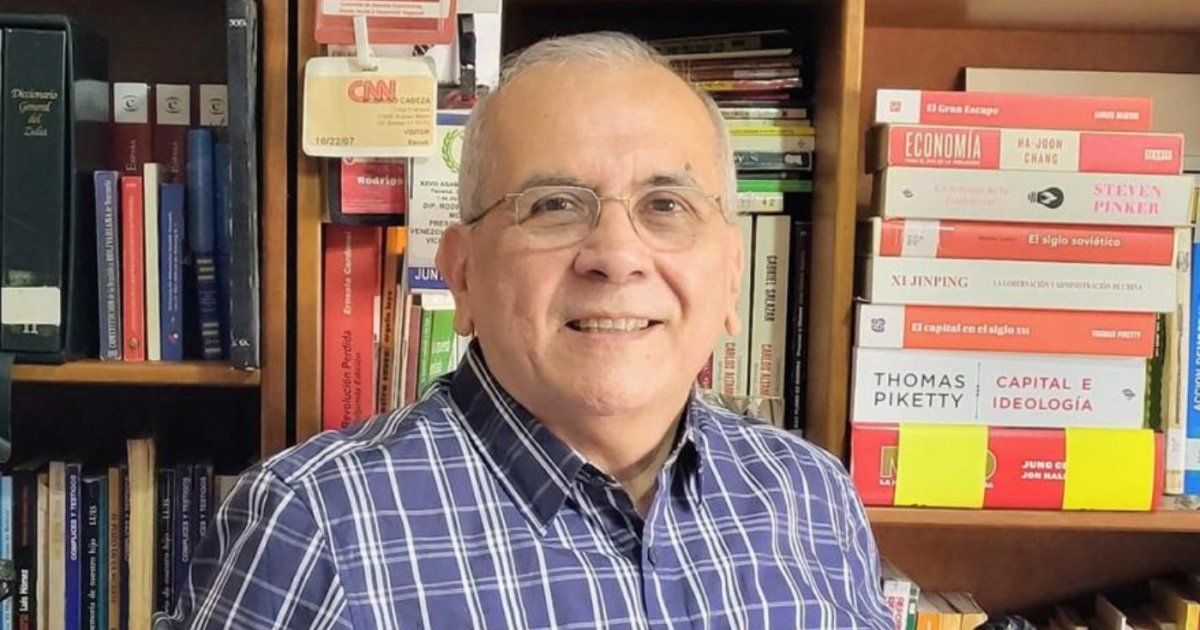Venezuela Arrests Ex-Finance Minister and Economists Amid Economic Turmoil

In a surprising turn of events, former Venezuelan Finance Minister Rodrigo Cabezas, who served under the late President Hugo Chávez (1999-2013), was arrested in Venezuela last Thursday. His daughter, Rodna Cabeza, confirmed the news to AFP on Wednesday, sparking widespread speculation and concern within the nation’s economic and political circles.
Cabezas's detention comes at a particularly sensitive time for Venezuela, which continues to grapple with a severe economic crisis characterized by hyperinflation, shortages of essential goods, and political instability. The arrest raises questions about the government’s intentions and the potential impact on ongoing economic reforms.
Who is Rodrigo Cabezas?
Rodrigo Cabezas held the position of Finance Minister between 2009 and 2012, a period marked by significant fluctuations in Venezuela's economy due to its heavy reliance on oil revenues. He was known for his attempts to manage the country's finances during a time of increasing economic challenges. His tenure saw efforts to implement fiscal controls and stabilize the currency, but these efforts were often hampered by external factors and internal political pressures.
The Arrest and its Implications
While the precise reasons for Cabezas’s arrest remain unclear, sources suggest it is linked to an ongoing investigation into alleged financial irregularities. The Venezuelan government has yet to release an official statement detailing the charges against him. However, the timing of the arrest, coinciding with heightened scrutiny of the nation’s economic policies, has fueled speculation that it is politically motivated.
Alongside Cabezas, several other economists and financial experts have also been detained. This coordinated action has further deepened concerns about a potential crackdown on dissent and a tightening of government control over the economy. The arrests could potentially deter future economic advisors and experts from engaging with the government, hindering efforts to address the country's deep-rooted economic problems.
The Chávez Legacy and Current Economic Situation
Hugo Chávez’s socialist policies, while initially popular, are widely considered to have contributed to the current economic crisis. His nationalization of key industries and price controls, coupled with a decline in oil prices, have devastated the Venezuelan economy. The current government, led by Nicolás Maduro, has struggled to reverse the downward trend, and the country continues to face severe hardship.
The arrest of a prominent figure like Rodrigo Cabezas underscores the fragility of Venezuela’s political and economic landscape. It remains to be seen what the government’s ultimate intentions are, but the situation highlights the ongoing challenges facing the nation as it attempts to navigate its way through a period of profound economic and political uncertainty. International observers are closely monitoring the situation, concerned about its potential impact on human rights and the rule of law.
Looking Ahead
The arrest of Rodrigo Cabezas and other economists is a significant development in Venezuela’s ongoing crisis. It raises serious questions about the government’s commitment to transparency and accountability. The coming weeks and months will be crucial in determining the long-term impact of these events on Venezuela’s economy and its political future.






